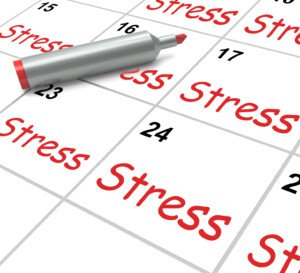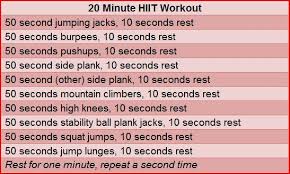
Not everyone can get a dog or magically conjure up heavenly relationships to fight stress, so here are 6 REALISTIC ways to lower cortisol, the “stress hormone.”
One of the key tactics in lowering the amount of circulating cortisol in your body is to lower the amount of stress in your life, says Susan L. Besser, MD, with Mercy Medical Center, Baltimore; Diplomate, American Board of Obesity Medicine and board certified by the American Board of Family Medicine.
“Obviously, lowering external stressors will help,” says Dr. Besser. “It’s mostly lifestyle changes.”
If you subscribe to the following six realistic and natural approaches, you can lower the amount of this stress hormone in your body.
Better Management of Stress to Lower Cortisol
This is easier said than done, but practice makes nearly perfect. Ask yourself, “Is being late for an appointment really going to alter the course of my life?”
For things that you get worked up over, ask if you can control them. You can’t control traffic jams, but you CAN leave the house a little earlier.
You can also ask the shmuck at work, whose constant singing is grating at your nerves, to cut back on the habit.
Your new game plan is to act, rather than secretly seethe and stress out. Secret seething is bad for cardiovascular health and contributes to elevated cortisol levels.
So does this mean take a hammer to the incessant singer? No. But take your voice to that person.
The ding-a-ling may still keep singing, but you will have removed the anxiety that comes with continuously wondering if you should say something.
During stressful moments, focus on deep breathing. Dr. Besser recommends meditation, which you can do at home during periods that you won’t be interrupted.

Freepik.com
And have some fun, too, while distracting yourself from a momentary stressor. For example, while waiting in slow-moving lines, do calf raises or see how many women have hair that’s suspicious for extensions.
A subset of better stress management would be to take up a hobby that requires focus: gardening, painting, learning a second language, buying a telescope and studying the night sky, etc.
Improve Your Sleep Hygiene
Better sleep is a great realistic way to help lower cortisol levels. Try to go to bed at the same time every night, and in a completely dark room if possible (blackout curtains will help).
Reserve your bed strictly for sleep and intimate relations. Do not read, use your phone, eat or do puzzles in bed or otherwise make your bed a conditioned stimulus for mental activity or stress.
Improve Your Diet
- Replace sodas and juices with water as much as possible.
- If you want chocolate, eat a solid bar rather than a cupcake or donut.
- Reduce sugar intake. Freshly prepared salads at Whole Foods, for instance, often contain added sugar! Bet you didn’t know that. Prepare salads like chicken, tuna, pasta and vegetable at home.
- Make a concerted effort to eat seven servings a day of any combination of vegetables (fresh from the produce section) and fruits.
Tabata or HIIT
Now, here’s something you need to really pay attention to when it comes to naturally and realistically lowering cortisol.
- Long-duration, slow cardio does not raise cortisol.
- Medium intensity aerobics raises cortisol. This is a problem. Medium intensity is sustainable but uncomfortable and forces heavy breathing.
- High intensity aerobics raises cortisol too. HOWEVER…high intensity also unleashes human growth hormone AND testosterone: two natural opponents of cortisol!
Thus, medium intensity cardio is the problem, not high intensity. The definition of high intensity is that which you cannot sustain for longer than about 30 seconds.
You don’t quit after 30 seconds because the timer says so. You quit after 30 seconds because your body simply cannot go a second longer.
The natural cortisol opponents will continue circulating in your body after the high intensity exercise is finished.
Tabata is 20 seconds ON of all-out effort (running, jumping, hill dashing, staircase dashing, pedaling) and then 10 seconds of very casual pacing. The 20/10 cycle goes for just four minutes – and then you’re done!
High intensity interval training (HIIT) would be 30 seconds of all-out effort with a few to several minutes of casual pacing in between for a total of half an hour.

Avoid Nighttime Caffeine
Enjoy your chocolate or coffee earlier in the day. This will have an indirect effect on lowering cortisol because caffeine can interfere with sleep.
Reducing the Stress Hormone Cortisol in Your Body
“There is no one simple answer,” says Dr. Besser.
It’s important that you strive to implement at least five of the above practical and realistic approaches.
“There are no ‘magic pills’ or herbals that lower cortisol.”










































